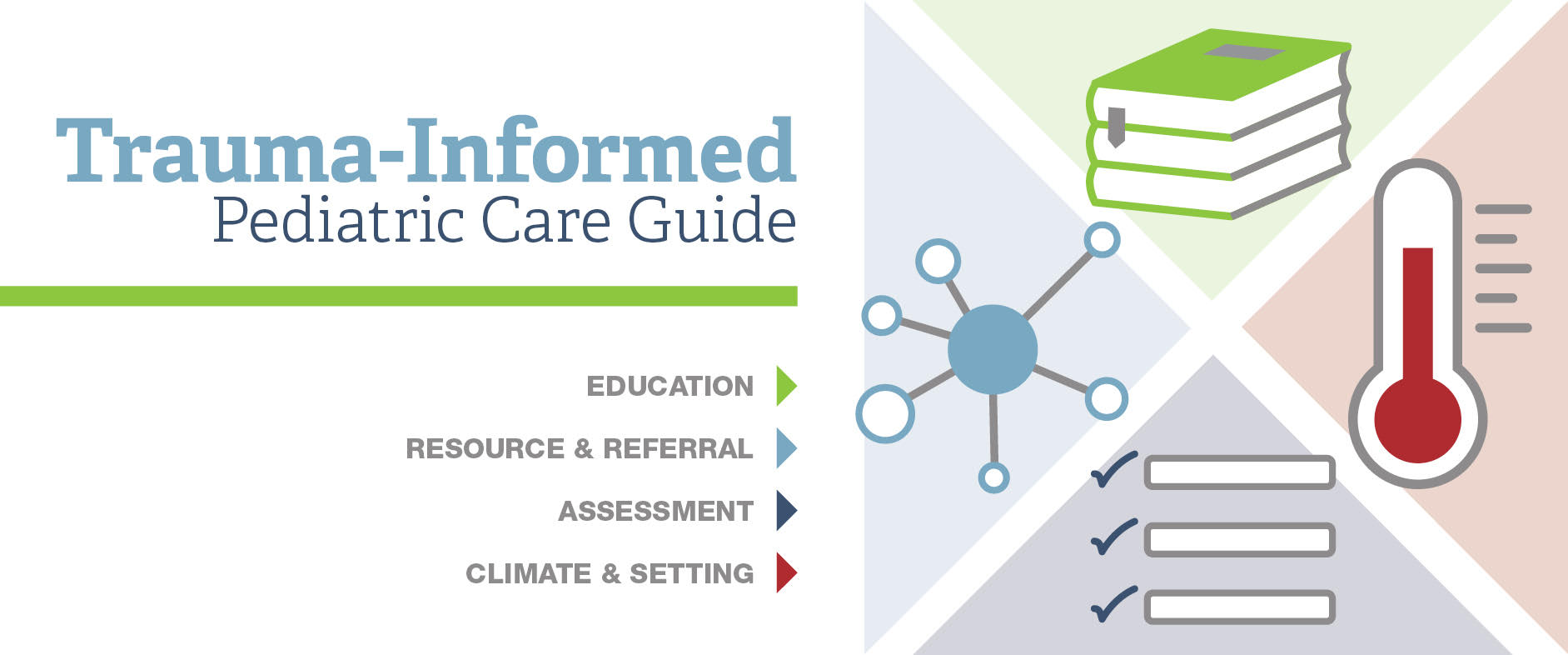Project Overview
“Studies show the majority of factors affecting health are environmental, rather than genetic or behavior related. The CDC describes 'social determinants of health' as a person’s physical or built environment, social environment, and access to adequate health care services" (CDC).
Addressing the social determinants of health in an evidence-based, two-generation manner will have a greater impact on life-course trajectories for pediatric patients and their families. Specifically, science is now informing clinical practice of the need to address adverse childhood experiences (ACES) and potential toxic stress and downstream effects in order to improve health outcomes. Research and best practices are showing promise in trauma assessments and multi-generational supports in the pediatric and family practice health care. This project seeks to develop a health sector strategy in the pediatric and family practice field for clinic-based trauma-informed practices.
In order to achieve this goal, clinics should strive toward trauma-informed care practices to promote caregiver competence, confidence, and resilience of children and families. What is trauma-informed care? It is a paradigm shift in approaching patient behavior and development. Instead of asking “what is wrong with you?” clinicians should consider “what happened to you to result in this behavior?”
Click here for a full project overview. Click here for our online module.
What are the benefits of a trauma-informed clinical practice?
TIC practices increase patient safety/security, improves the social environment, improves the two-generation approach of caring for caregivers, improve the overall quality of services and patient experience, reduce negative encounters, improve staff and clinician satisfaction, promote organizational wellness, improve financial health of clinics as well as overall health for patients (adapted from The National Council on Community Behavioral Healthcare).
How to Use
To access the guide, practitioners and clinics first complete an assessment on the overall trauma-informed nature of their practice. This will provide a baseline for the clinic to identify areas of opportunity. The assessment takes approximately 5-7 minutes to complete. This assessment was developed by trauma and research experts at University of Iowa. Following completion of the assessment, the guide will be accessible.
“Studies show the majority of factors affecting health are environmental, rather than genetic or behavior related. The CDC describes 'social determinants of health' as a person’s physical or built environment, social environment, and access to adequate health care services" (CDC).
Addressing the social determinants of health in an evidence-based, two-generation manner will have a greater impact on life-course trajectories for pediatric patients and their families. Specifically, science is now informing clinical practice of the need to address adverse childhood experiences (ACES) and potential toxic stress and downstream effects in order to improve health outcomes. Research and best practices are showing promise in trauma assessments and multi-generational supports in the pediatric and family practice health care. This project seeks to develop a health sector strategy in the pediatric and family practice field for clinic-based trauma-informed practices.
In order to achieve this goal, clinics should strive toward trauma-informed care practices to promote caregiver competence, confidence, and resilience of children and families. What is trauma-informed care? It is a paradigm shift in approaching patient behavior and development. Instead of asking “what is wrong with you?” clinicians should consider “what happened to you to result in this behavior?”
Click here for a full project overview. Click here for our online module.
What are the benefits of a trauma-informed clinical practice?
TIC practices increase patient safety/security, improves the social environment, improves the two-generation approach of caring for caregivers, improve the overall quality of services and patient experience, reduce negative encounters, improve staff and clinician satisfaction, promote organizational wellness, improve financial health of clinics as well as overall health for patients (adapted from The National Council on Community Behavioral Healthcare).
How to Use
To access the guide, practitioners and clinics first complete an assessment on the overall trauma-informed nature of their practice. This will provide a baseline for the clinic to identify areas of opportunity. The assessment takes approximately 5-7 minutes to complete. This assessment was developed by trauma and research experts at University of Iowa. Following completion of the assessment, the guide will be accessible.
If you have already completed the assessment or would like to enter the guide directly, please click here.

